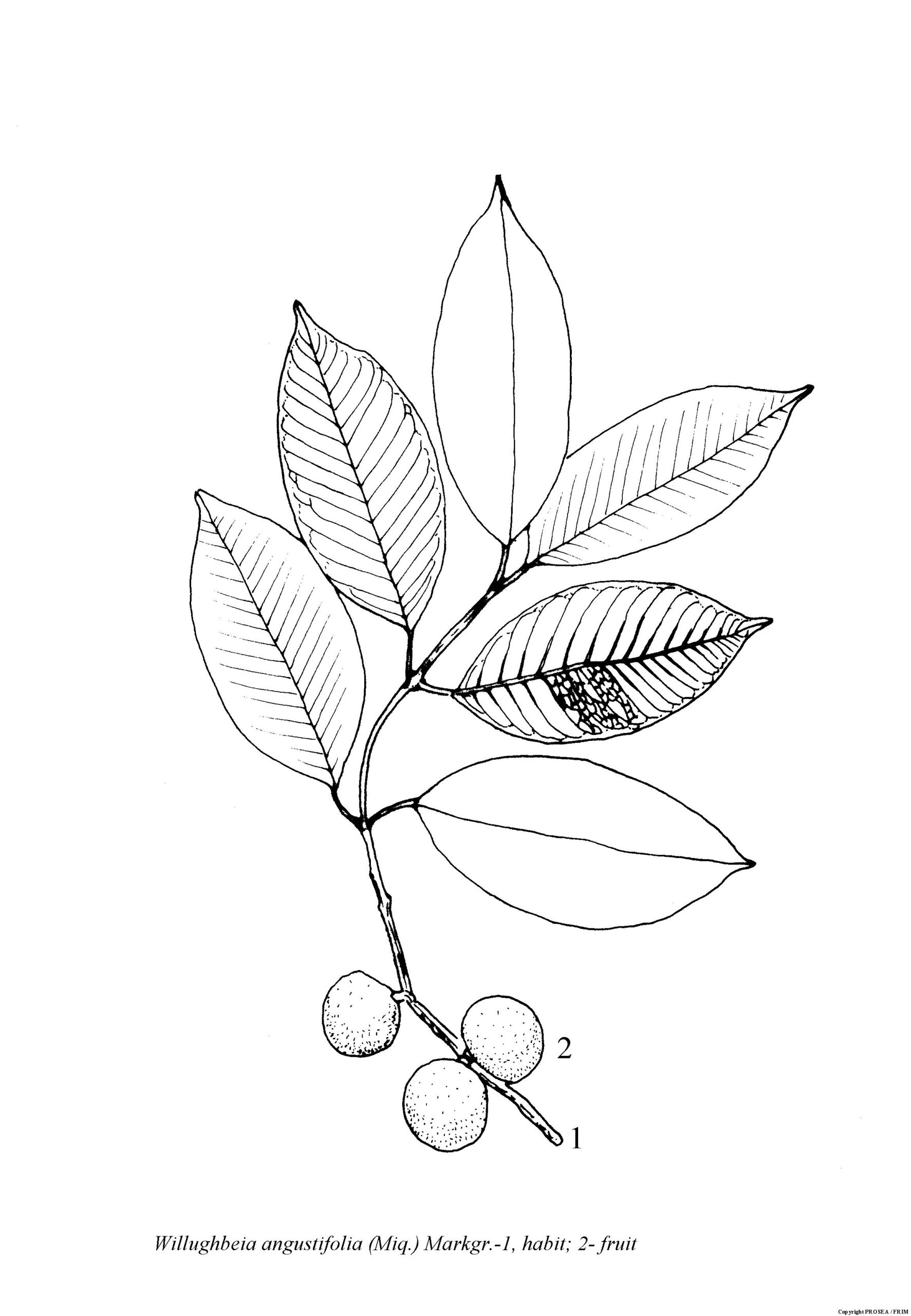Willughbeia angustifolia (Miq.) Markgr.
Family
Thymelaeaceae
Synonyms
Willughbeia apiculata Miq., W. elmeri Merr., W. rufescens Dyer ex Hook.f.
Vernacular Names
| Malaysia | gerit-gerit. |
| Indonesia | jotan (Batak), jantahan, langgitan (West Kalimantan). |
Geographical Distributions
Willughbeia angustifolia is distributed from Thailand, Malaysia, Indonesia (Sumatra, Kalimantan, Buru), Brunei, Nicobar Islands.
Description
W. angustifolia is a woody climber, up to measure 60 m long, with smooth branchlets and it produces latex.
The leaves are arranged opposite. The petiole is up to measure 2 cm long. The blade is elliptical, ovate or oblong in shape, with a size of measure about 3-14 cm x 1-4 cm, 2-4 times as long as wide, rounded to wedge-shaped base and obtuse to acuminate apex.
The inflorescence is an axillary cyme (rarely a fascicle of 3), up to measure 2 cm long and with 5-19 flowers. The flowers are 5-merous, actinomorphic, bisexual and they are white to greenish in colour. The petal is tubular, inflated tube, up to measure 3 mm long and with up to measure 4.5 mm long lobes.
The fruit is a fleshy, spherical berry, with a size of measure about 2-10 cm in diametre, pale green, yellow, orange or reddish in colour and indehiscent.
The seed is a compressed ovoid in shape, with a size of measure about 2 cm x 1 cm and with absent coma.
Ecology / Cultivation
W. angustifolia is rather variable in leaf shape, size and venation. Its small inflated corolla tube and short delicate inflorescence are rather distinctive.
Line Drawing / Photograph
References
- Plant Resources of South-East Asia No. 18: Plants producing exudates.


